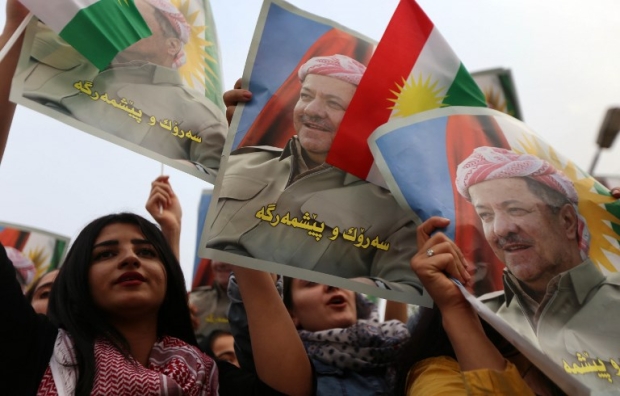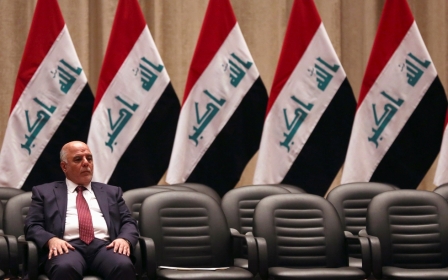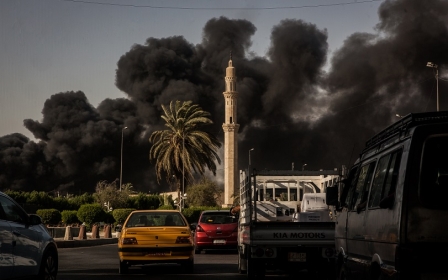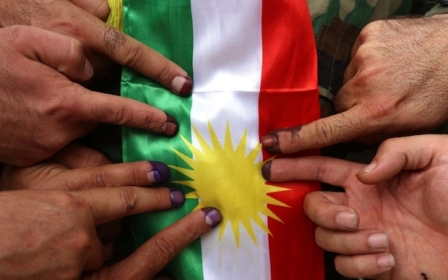Iraqi Kurds must unite for their rights
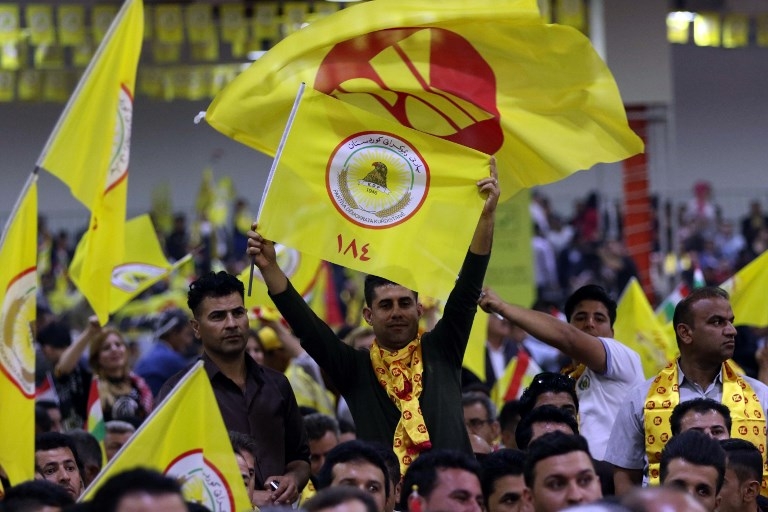
On 12 May, for the first time, Iraq’s parliamentary election was held using an electronic system, but the results were disputed by many political groups, including all but two Kurdish parties, the Kurdistan Democratic Party (KDP) and the Patriotic Union of Kurdistan (PUK).
Those disputing the results cited a systematic rigging of the votes by the parties that control the Independent High Electoral Commission by appointing commissioners.
Non-ruling Kurdish political parties, along with many observers, did not expect the KDP and PUK to perform well in the elections, especially in light of the aftermath of the 2017 independence referendum. Political analyst Ibrahim al-Marashi predicted that the KDP would suffer for its leader’s failed push for independence for Iraq’s Kurds, while the PUK would be punished for "its tacit role in allowing the oil-rich city of Kirkuk to revert back to Iraqi government control".
Contested recount
Surprisingly, in Kirkuk itself, the PUK came in first place. Combined with the new use of electronic voting, this bolstered the opposition narrative of electoral fraud. Iraq’s parliament consequently passed a law mandating a nationwide manual recount and calling for an overhaul of the electoral commission’s leadership.
As the president of the main Kurdish party, [Barzani] can immediately step in and guarantee the demands of the opposition parties through practical measures. The birth of a Kurdish bloc would follow
The outcome of the recount changed little and it did not convince Kurdish opposition parties, including the Change Movement, the Kurdistan Islamic Union, the Islamic Group and the Coalition for Democracy and Justice. The four parties opted to file a lawsuit over alleged vote-rigging.
According to the official results, the KDP and PUK won a combined total of 43 seats, compared with 15 for Kurdish opposition parties. A coalition among all Kurdish parties would make them the largest parliamentary bloc and give them a much stronger position in negotiations to form the cabinet, as well as in future talks with Iraq’s federal government over disputes involving the Kurdish region.
Calls for reform
The internal Kurdish rift is rooted in opposition calls for reform, which have led to disunity between the ruling parties (KDP and PUK) and the opposition over how to deal with Baghdad.
In last year’s referendum, the Change Movement and the Islamic Group did not support KDP leader Massoud Barzani, amid ongoing disagreements over issues such as the region’s presidency act and the 2015 ousting of the parliamentary speaker by the KDP.
For Kurdish parties to circumvent this ongoing rift, which weakens their broader battle for their rights within Iraq, they need to move forward, especially in the next phase of negotiations between the Kurdistan Regional Government (KRG) and Baghdad over disputed territory, along with issues concerning the Peshmerga and the regional budget.
Barzani's role
The primary responsibility for moving the region forward lies with Barzani. As the president of the main Kurdish party, he can immediately step in and guarantee the demands of the opposition parties through practical measures. The birth of a Kurdish bloc would follow.
Otherwise, a fragmented Kurdish representation in Baghdad will not be able to fight for the constitutional rights of the country’s Kurds. And as the clock ticks closer towards Kurdish regional elections in September, the timing could not be more critical.
Although further delaying additional intra-Kurdish talks will complicate the situation more, as demonstrated when the four opposition parties met in Sulaymaniyah on 27 August and formed a new Kurdish coalition, conversely there are already different Iraqi coalitions in negotiation with the KDP and PUK bloc.
Therefore, two different Kurdish negotiators would not project a strong united voice for the Kurdistan region in its struggle for Kurdish rights in Iraq. Yet informal calls for internal talks from both Kurdish sides may lead to a last-minute Kurdish agreement, which would obviously place them in a better position in their negotiations with Baghdad.
- Mohammad Salih Mustafa holds a PhD in ethno-political studies from the University of Exeter; his thesis was titled Religious Nationalism in the Kurdistan Region of Iraq.
The opinions expressed in this article are author’s own and do not necessarily reflect the editorial policy of Middle East Eye.
Photo: Iraqi Kurds attend a KDP rally in Erbil on 29 April (AFP)
Middle East Eye propose une couverture et une analyse indépendantes et incomparables du Moyen-Orient, de l’Afrique du Nord et d’autres régions du monde. Pour en savoir plus sur la reprise de ce contenu et les frais qui s’appliquent, veuillez remplir ce formulaire [en anglais]. Pour en savoir plus sur MEE, cliquez ici [en anglais].



